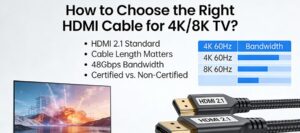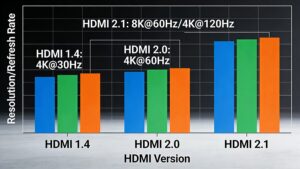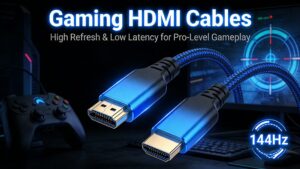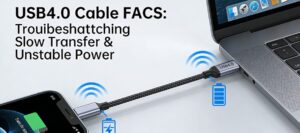In today’s tech – driven world, USB C to HDMI cables are essential for connecting devices. They bridge modern USB C – equipped gadgets like laptops and smartphones to HDMI displays, enabling seamless video and audio sharing.
How It Works
These cables use DisplayPort Alternate Mode (DP Alt Mode) to convert signals from USB C ports into an HDMI – compatible format. The USB C port sends video and audio signals, which the cable then translates for the HDMI display to understand.
Types of Cables
|
Cable Type
|
Resolution Support
|
Key Feature
|
|
Standard
|
Up to 4K (30Hz – 60Hz)
|
Basic connectivity for daily tasks
|
|
High – Speed
|
Up to 8K, high 4K refresh rates
|
Ideal for gaming and 4K/8K media
|
|
Power Delivery
|
Varies
|
Charges connected devices while transmitting
|
Benefits at a Glance
- Versatility: Works with laptops, tablets, and smartphones across different operating systems.
- High – Res Support: Enables 4K and even 8K viewing for an immersive experience.
- Easy Setup: Plug – and – play, no complex drivers needed.
Choosing the Right Cable
Quick Troubleshooting
- No Signal: Check connections, port compatibility, and resolution settings.
- Poor Quality: Upgrade to a high – speed cable if needed, or check for incorrect settings.
- Audio Issues: Verify sound output settings and cable audio support.







